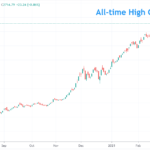Article by Mahim Dhungel
Software Engineer, Quant
Education: Maharashtra Institute of Technology, Pune
(Published on ShareSansar, Friday April 9, 2021)
For those of you who preach that value investing is THE WAY for a retail investor to make money, the first question I ask is “Why don’t you tell us what the future cash flow of XYZ company looks like and discount it back? And I’ll agree with what you have to say given that in my opinion that most venture capitalists can’t do the math behind a discounted cash flow valuation.”
It’s fairly easy to exemplify the likes of Warren Buffett, Bill Ackman, Ray Dalio, or Peter Lynch or who have you, but the preachers here fail to account for the capital they began with or the extensive knowledge on analyzing a balance sheet. I guarantee that these preachers can hardly tell you all the terms that go into a balance sheet. The usual jargon like EPS, or the P/E ratio that makes you think “Oh wow! This person knows what they’re talking about” fails to account for the fact that the same preacher doesn’t know that Buffett actually looks at what’s called an “Owner’s earnings.” Or that these big investors have enough capital to invest in other securities if either of their trade goes south or that they always hedge their bets.
No, they’ll simply tell you that “Value investing” is the “it” factor to make money in stocks. Honestly, you’d have a better chance of predicting a future cash flow using a simple linear regression than a preacher who doesn’t know the first thing on predicting the future cash flow but speculates the price and sells it as value investing.
I feel like I have to clarify here that I’m actually a big believer in Value investing contrary to what my article implies. I’m simply here to warn you of the downside of value investing. That there is the other side to the coin so to speak when it comes to value investing. Everything will be clear with the following example.
Bill Ackman publicly took a short position on Herbalife. In his opinion, it was a pyramid scheme. I believe I don’t need to emphasize the due diligence he and his team did to publicly call a public company a pyramid scheme. I won’t be able to explain the entire story behind his big “Betting on Zero” against Herbalife, but what I can assure is that in his mind (and countless others like me) it was value investing. But after a five-year war against Herbalife, he decided to cut his losses and exit the position after Carl Icahn and other hedge funds took the other side of the bet, the long side.
The moral of the story here is that a proficient investor and money manager like Bill Ackman could afford to lose that money, but what about the retail investors who believed in Ackman’s due diligence and took the same position? Would you have been able to lose given that Bill Ackman himself assured you about a position? If not, my question is why should you believe in somebody who blindly recommends value investing?
To further elaborate on the battle between value investing and quantitative analysis, take a look at Renaissance Technologies. It’s a hedge fund founded by the brilliant mathematician Jim Simons. The Medallion Fund in Renaissance Technologies has an average annual return of 66% before fixed fees and a cut from the profit, while Berkshire Hathaway has an average annual return of 21%. Now if that’s not a better track record than value investing, I don’t know what is.
Renaissance Technologies which gave birth to other hedge funds like DE Shaw and Two Sigma have performed similarly if not better. Two Sigma is said to be the best performing Hedge fund on Wall Street. All these hedge funds have an average holding period of 2 to 4 days. Some are even high-frequency traders (HFT). Quantitative analysis is the engine behind them, regardless of the holding period.
Now you could make the same argument and ask me “Why should we believe you not believing in value investing for a retail investor?”. The simple answer is: You should not. But from my own experience, if you’re like me who’s starting out with low capital, you’re better off learning statistical modeling and probabilistic theory like Kelly Criteria on position sizing (Kelly criteria is also known as the scientific gambling method) and machine learning (deep learning in particular) just to name a few. Granted that the latter is not within the realm of everybody and the greek letters of calculating a beta or a correlation could make you feel stupid at first (happened to me) but I assure you, you’ll feel the same doing a DCF valuation (again, happened to me). But if you were to ask me, I’d say you’d have better luck with machine learning given the countless number of projects on GitHub and help on StackOverflow or tutorials on youtube than a bourgeoisie article on value investing.
Again I’ll emphasize that I am not against value investing. The legends I mentioned above are some of my idols but I just want to let the retail investors know that retail trading on a swing or a positional basis could also be the way to your riches. Just look at all your available options!




3 Comments
lowden
This is a topic which is close to my heart… Cheers! Where are your contact details though?
UniHome Investment
Thank you, Dear Lowden!,
We, UniHome Investment, will keep on posting articles related to investment research as our core belief is to empoer investors through education. You could subscribe us or keep on visiting us.
Our details: https://www.unihome.com.np
https://j-website.net
Best view i have ever seen !